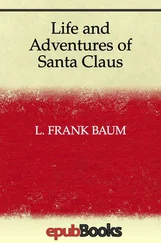Charles Dickens - Life And Adventures Of Martin Chuzzlewit
Здесь есть возможность читать онлайн «Charles Dickens - Life And Adventures Of Martin Chuzzlewit» весь текст электронной книги совершенно бесплатно (целиком полную версию без сокращений). В некоторых случаях можно слушать аудио, скачать через торрент в формате fb2 и присутствует краткое содержание. Жанр: Классическая проза, на английском языке. Описание произведения, (предисловие) а так же отзывы посетителей доступны на портале библиотеки ЛибКат.
- Название:Life And Adventures Of Martin Chuzzlewit
- Автор:
- Жанр:
- Год:неизвестен
- ISBN:нет данных
- Рейтинг книги:5 / 5. Голосов: 1
-
Избранное:Добавить в избранное
- Отзывы:
-
Ваша оценка:
- 100
- 1
- 2
- 3
- 4
- 5
Life And Adventures Of Martin Chuzzlewit: краткое содержание, описание и аннотация
Предлагаем к чтению аннотацию, описание, краткое содержание или предисловие (зависит от того, что написал сам автор книги «Life And Adventures Of Martin Chuzzlewit»). Если вы не нашли необходимую информацию о книге — напишите в комментариях, мы постараемся отыскать её.
Life And Adventures Of Martin Chuzzlewit — читать онлайн бесплатно полную книгу (весь текст) целиком
Ниже представлен текст книги, разбитый по страницам. Система сохранения места последней прочитанной страницы, позволяет с удобством читать онлайн бесплатно книгу «Life And Adventures Of Martin Chuzzlewit», без необходимости каждый раз заново искать на чём Вы остановились. Поставьте закладку, и сможете в любой момент перейти на страницу, на которой закончили чтение.
Интервал:
Закладка:
And it won't save the head
That is doom'd to be rifled and riven.
That must be a precious old song,” he added with an oath, as he stopped short in a kind of wonder at himself. “I haven't heard it since I was a boy, and how it comes into my head now, unless the lightning put it there, I don't know. “Can't hurt the dead”! No, no. “And won't save the head”! No, no. No! Ha, ha, ha!”
His mirth was of such a savage and extraordinary character, and was, in an inexplicable way, at once so suited to the night, and yet such a coarse intrusion on its terrors, that his fellow-traveller, always a coward, shrunk from him in positive fear. Instead of Jonas being his tool and instrument, their places seemed to be reversed. But there was reason for this too, Montague thought; since the sense of his debasement might naturally inspire such a man with the wish to assert a noisy independence, and in that licence to forget his real condition. Being quick enough, in reference to such subjects of contemplation, he was not long in taking this argument into account and giving it its full weight. But still, he felt a vague sense of alarm, and was depressed and uneasy.
He was certain he had not been asleep; but his eyes might have deceived him; for, looking at Jonas now in any interval of darkness, he could represent his figure to himself in any attitude his state of mind suggested. On the other hand, he knew full well that Jonas had no reason to love him; and even taking the piece of pantomime which had so impressed his mind to be a real gesture, and not the working of his fancy, the most that could be said of it was, that it was quite in keeping with the rest of his diabolical fun, and had the same impotent expression of truth in it. “If he could kill me with a wish,” thought the swindler, “I should not live long.”
He resolved that when he should have had his use of Jonas, he would restrain him with an iron curb; in the meantime, that he could not do better than leave him to take his own way, and preserve his own peculiar description of good-humour, after his own uncommon manner. It was no great sacrifice to bear with him; “for when all is got that can be got,” thought Montague, “I shall decamp across the water, and have the laugh on my side—and the gains.”
Such were his reflections from hour to hour; his state of mind being one in which the same thoughts constantly present themselves over and over again in wearisome repetition; while Jonas, who appeared to have dismissed reflection altogether, entertained himself as before. They agreed that they would go to Salisbury, and would cross to Mr Pecksniff's in the morning; and at the prospect of deluding that worthy gentleman, the spirits of his amiable son-in-law became more boisterous than ever.
As the night wore on, the thunder died away, but still rolled gloomily and mournfully in the distance. The lightning too, though now comparatively harmless, was yet bright and frequent. The rain was quite as violent as it had ever been.
It was their ill-fortune, at about the time of dawn and in the last stage of their journey, to have a restive pair of horses. These animals had been greatly terrified in their stable by the tempest; and coming out into the dreary interval between night and morning, when the glare of the lightning was yet unsubdued by day, and the various objects in their view were presented in indistinct and exaggerated shapes which they would not have worn by night, they gradually became less and less capable of control; until, taking a sudden fright at something by the roadside, they dashed off wildly down a steep hill, flung the driver from his saddle, drew the carriage to the brink of a ditch, stumbled headlong down, and threw it crashing over.
The travellers had opened the carriage door, and had either jumped or fallen out. Jonas was the first to stagger to his feet. He felt sick and weak, and very giddy, and reeling to a five-barred gate, stood holding by it; looking drowsily about as the whole landscape swam before his eyes. But, by degrees, he grew more conscious, and presently observed that Montague was lying senseless in the road, within a few feet of the horses.
In an instant, as if his own faint body were suddenly animated by a demon, he ran to the horses” heads; and pulling at their bridles with all his force, set them struggling and plunging with such mad violence as brought their hoofs at every effort nearer to the skull of the prostrate man; and must have led in half a minute to his brains being dashed out on the highway.
As he did this, he fought and contended with them like a man possessed, making them wilder by his cries.
“Whoop!” cried Jonas. “Whoop! again! another! A little more, a little more! Up, ye devils! Hillo!”
As he heard the driver, who had risen and was hurrying up, crying to him to desist, his violence increased.
“Hiilo! Hillo!” cried Jonas.
“For God's sake!” cried the driver. “The gentleman—in the road— he'll be killed!”
The same shouts and the same struggles were his only answer. But the man darting in at the peril of his own life, saved Montague's, by dragging him through the mire and water out of the reach of present harm. That done, he ran to Jonas; and with the aid of his knife they very shortly disengaged the horses from the broken chariot, and got them, cut and bleeding, on their legs again. The postillion and Jonas had now leisure to look at each other, which they had not had yet.
“Presence of mind, presence of mind!” cried Jonas, throwing up his hands wildly. “What would you have done without me?”
“The other gentleman would have done badly without ME,” returned the man, shaking his head. “You should have moved him first. I gave him up for dead.”
“Presence of mind, you croaker, presence of mind” cried Jonas with a harsh loud laugh. “Was he struck, do you think?”
They both turned to look at him. Jonas muttered something to himself, when he saw him sitting up beneath the hedge, looking vacantly around.
“What's the matter?” asked Montague. “Is anybody hurt?”
“Ecod!” said Jonas, “it don't seem so. There are no bones broken, after all.”
They raised him, and he tried to walk. He was a good deal shaken, and trembled very much. But with the exception of a few cuts and bruises this was all the damage he had sustained.
“Cuts and bruises, eh?” said Jonas. “We've all got them. Only cuts and bruises, eh?”
“I wouldn't have given sixpence for the gentleman's head in half-adozen seconds more, for all he's only cut and bruised,” observed the post-boy. “If ever you're in an accident of this sort again, sir; which I hope you won't be; never you pull at the bridle of a horse that's down, when there's a man's head in the way. That can't be done twice without there being a dead man in the case; it would have ended in that, this time, as sure as ever you were born, if I hadn't come up just when I did.”
Jonas replied by advising him with a curse to hold his tongue, and to go somewhere, whither he was not very likely to go of his own accord. But Montague, who had listened eagerly to every word, himself diverted the subject, by exclaiming: “Where's the boy?”
“Ecod! I forgot that monkey,” said Jonas. “What's become of him?” A very brief search settled that question. The unfortunate Mr Bailey had been thrown sheer over the hedge or the five-barred gate; and was lying in the neighbouring field, to all appearance dead.
“When I said to-night, that I wished I had never started on this journey,” cried his master, “I knew it was an ill-fated one. Look at this boy!”
“Is that all?” growled Jonas. “If you call THAT a sign of it—”
“Why, what should I call a sign of it?” asked Montague, hurriedly. “What do you mean?”
Читать дальшеИнтервал:
Закладка:
Похожие книги на «Life And Adventures Of Martin Chuzzlewit»
Представляем Вашему вниманию похожие книги на «Life And Adventures Of Martin Chuzzlewit» списком для выбора. Мы отобрали схожую по названию и смыслу литературу в надежде предоставить читателям больше вариантов отыскать новые, интересные, ещё непрочитанные произведения.
Обсуждение, отзывы о книге «Life And Adventures Of Martin Chuzzlewit» и просто собственные мнения читателей. Оставьте ваши комментарии, напишите, что Вы думаете о произведении, его смысле или главных героях. Укажите что конкретно понравилось, а что нет, и почему Вы так считаете.









